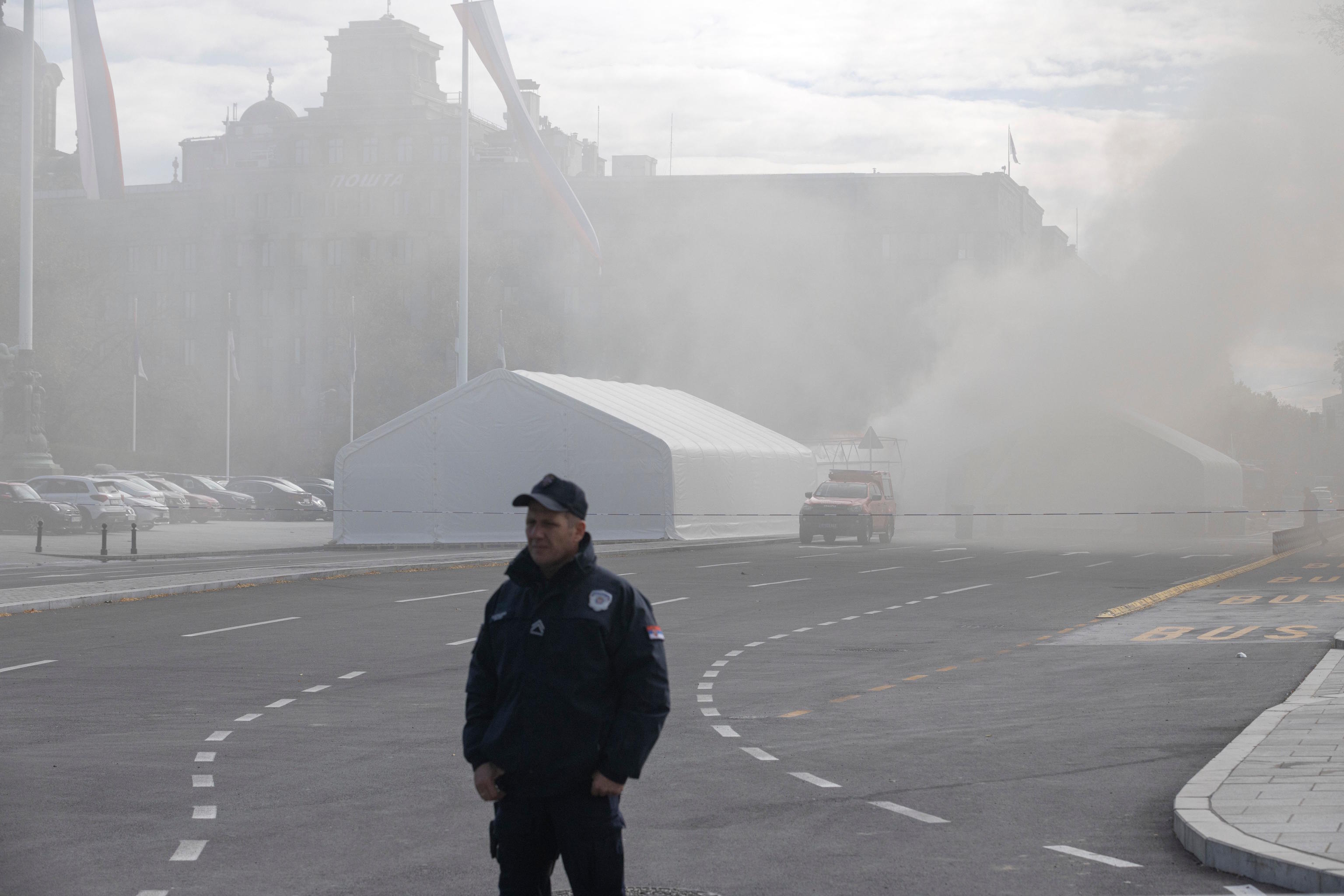Protests continue in Serbia against the government of Aleksandar Vucic, but a year after the spark that ignited everything, weariness is taking its toll. The upcoming November 1st will mark the anniversary of the collapse of the overhang at the Novi Sad station that killed 16 people and sparked the anger of university students demanding to "change the system," reminiscent of the protests 25 years ago against Slobodan Milosevic that led to the end of his regime.
Universities on strike, last year's academic year lost, unpaid professors, support from diverse sectors of society, the largest demonstration in Serbia's history, and a journey to Strasbourg by bicycle covering over 2,000 kilometers to make their voices heard throughout Europe... Because Serbia aspires to join the EU.
"There are already many tired people, and time is starting to show," says Ivana Palibrk, a resident of Madrid who has supported the protests in her country from the very beginning as a member of the Serbian diaspora in the Spanish capital. This teacher and translator is in constant contact with the students and, although she believes that the temperature on the streets will rise again in the coming days due to the significance of the date, "everything has significantly declined because people are tired of doing the same thing."
"The idea was not to replicate the Greek scenario and normalize the protests," she explains, and although she sees that after the initial momentum of the first few months, "it is now clashing a bit with reality," she is convinced that the end of the current government is inevitable, "although the exact timing is uncertain."
After the initial calls for resignations - the former Prime Minister, Milos Vucecic, resigned - and the demand for transparency in the investigation into those responsible for the Novi Sad incident, which students attributed to endemic government corruption, calling for early elections has become the main demand of these protests in recent months, something Vucic has not even considered. The next general elections are scheduled for 2027.
"Vucic will hold on as long as he can," says analyst Mira Milosevich, an expert at the Elcano Royal Institute and a Belgrade native, who believes the president has managed to create internal divisions, his goal since the protests began. Milosevich believes this movement "has gained the broadest social support," but "lacks a clear political articulation" to achieve its purpose.
The idea of the movement, which has no visible leader, is to present a list in the upcoming general elections, with members still unknown, but without any opposition party or member. "It is impossible to mobilize an entire society against a system without political articulation," this expert concludes.
Another issue is the polarization that is being detected. In response to the protests, a pro-Vucic movement emerged, even setting up a camp next to the Parliament in Belgrade. This week, a 70-year-old man, a former security forces member, was arrested after shooting and injuring a 57-year-old person at the camp and setting one of the tents on fire. Vucic held a press conference where he described the incident as a "terrorist attack" and stated that the opposition only had "leisure and violence" left.
"It is true that things are very heated, and everyone is being asked to take a stand on the issue, including athletes," says Ivana Palibrk. "I don't think this is right because now it's like either you're with me or against me," she adds, noting an increase in police violence against the movement in recent months: "It is no longer hidden as before, and those who break the rules are not being held accountable," she points out.
Meanwhile, university students are trying to make up for the lost time from the previous academic year, which they resumed studying during the summer to catch up, and are starting with new syllabi in November. Back to normal a year after the accident.
